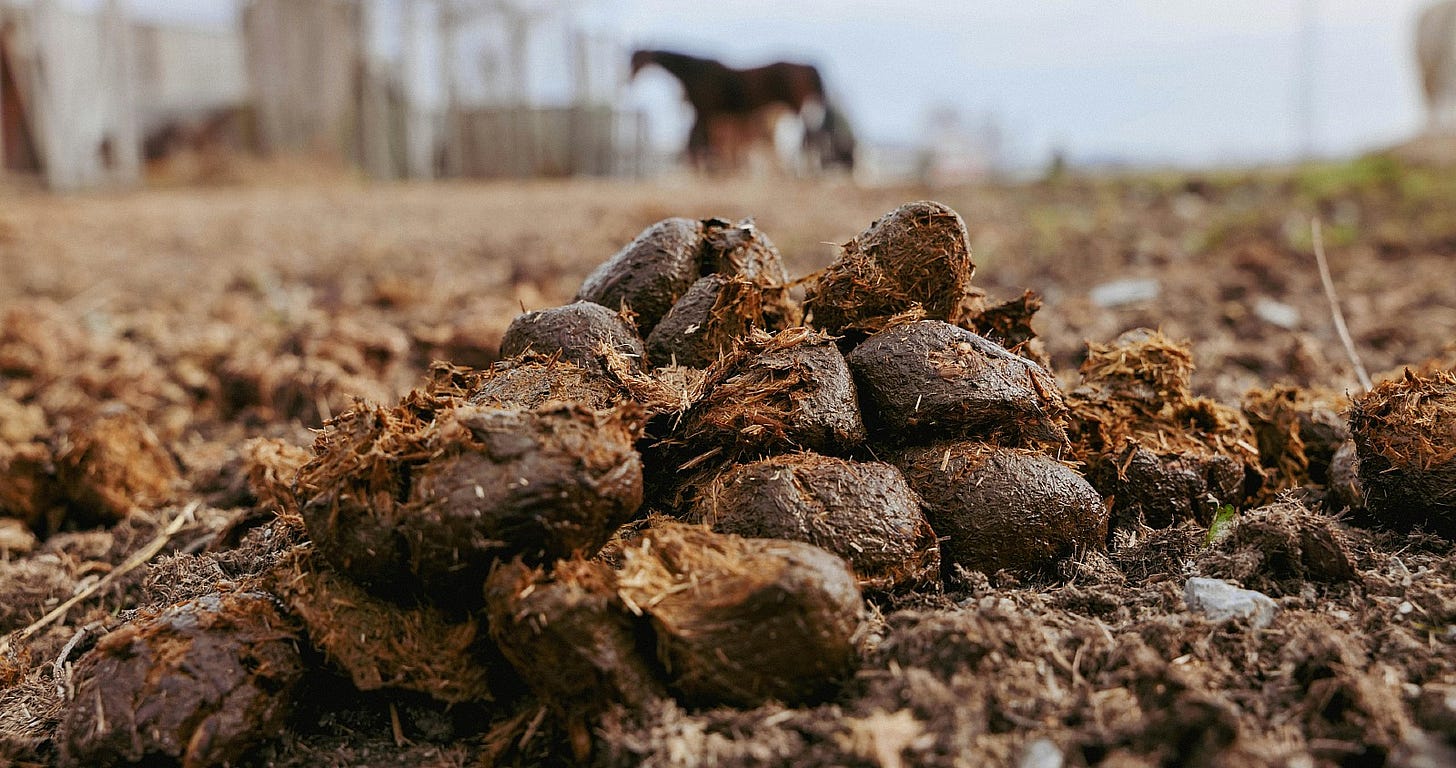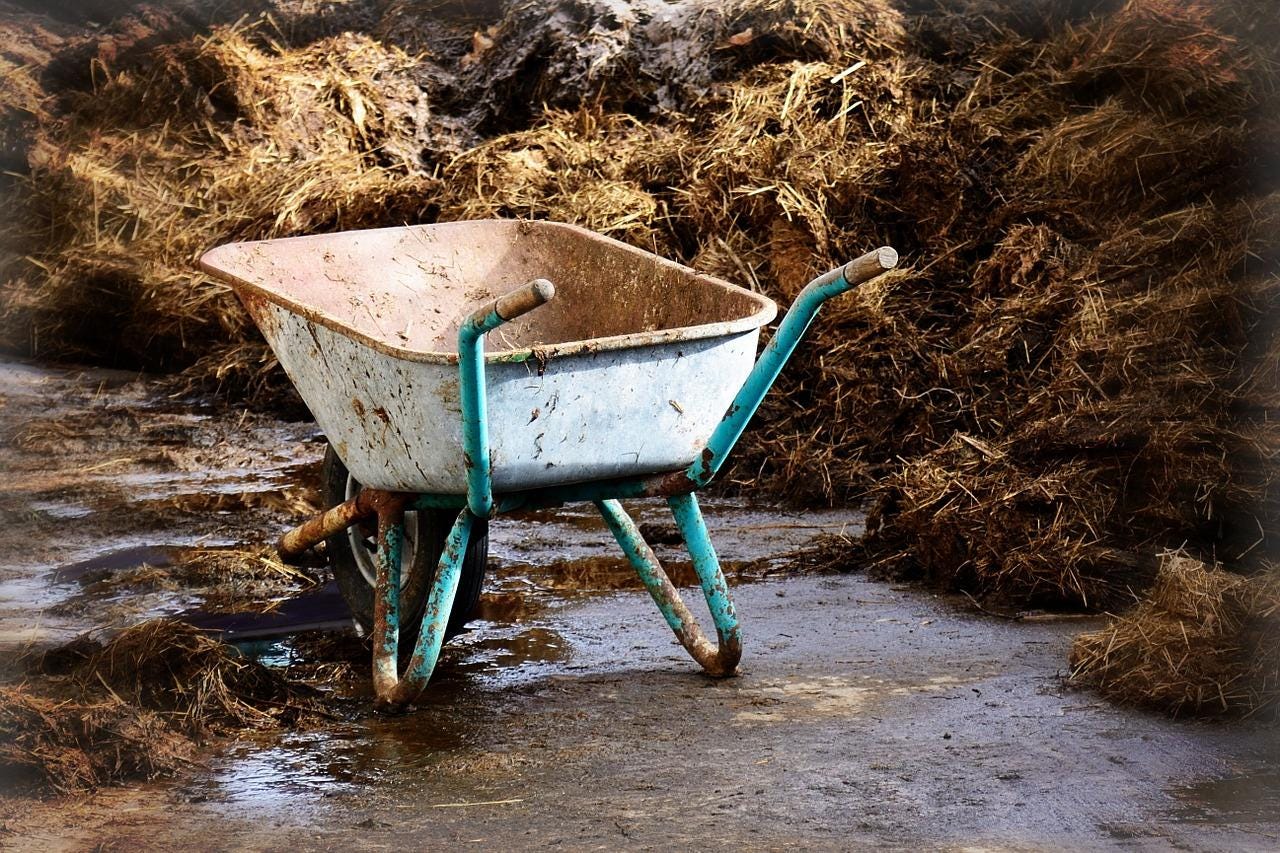Truth Telling in a World of Political Lies
Finding Balance Between Cynicism and Naivety in a Post-Truth Era
I should not lie to you, my mum, his Holiness the Pope, and especially not to myself. If you become a politician, all these basic morality rules will disappear. At least, this is their ruse. It cannot persist...
I was sitting in my local coffee shop yesterday, watching a climate protest through the window while scrolling through another politician's tweet about energy policy.
The contrast was striking—passionate young people waving signs with peer-reviewed data on one side of the glass and carefully crafted political spin on my screen that contradicted every number they held up.
This moment perfectly captures the growing chasm between scientific evidence and political rhetoric. You've probably felt it, too.
Maybe you're a student watching your carefully researched presentations bump up against entrenched political talking points. Or perhaps you're like fellow sceptic Chris, who, after years of practical land management experience, finds himself increasingly frustrated by policies built on convenient falsehoods rather than ecological reality.
We're all navigating a world where truth has become surprisingly slippery.
Politicians have moved from being "economical with the truth" in the 1980s to embracing the ‘big lie strategy’ where falsehoods are stated with such conviction and frequency that they begin to feel normal. For those who care deeply about evidence-based decision-making, especially in environmental policy, this creates a particular kind of cognitive dissonance.
But we don't have to choose between cynical disengagement and naive acceptance.
Through my years of research and teaching, I've found that mindful scepticism offers a powerful middle path. It's an approach that combines the rigour of scientific thinking with emotional intelligence to stay balanced in an unbalanced world.
And that's exactly what I want to share with you today—a few practical tools for navigating political deception without losing your mind or hope.
Whether you're early in your environmental career or bringing decades of wisdom to our current challenges, understanding how to handle political lies while staying true to evidence is now an essential skill.
Should I lie to you?
Should I lie to you? Should politicians lie to us? Should we allow politicians to lie?
My answer to such questions is an emphatic no, mainly because there are too many sensible reasons for telling the truth.
If you are truthful, others will trust you. This is vital, given trust is the glue that holds people together, from your partner's intimacy to the organisation of society and economies. It is the foundation of the social contract.
Truth-telling is easier to maintain over time because, as anyone with a hint of the higher self in them knows, the truth persists whilst all else withers.
The truth is easier to keep than lies. Unless you are a secret service-level deceiver, sooner or later, your lies will find you out as hints of the persistent truth slip out.
So why do politicians lie, seemingly constantly, and with ever-increasing conviction?
Many politicians will lie on the campaign trail and, with alarming veracity, lie to the electorate. They always tell voters what they want and get away with lying. It is trite to call them liars.
In a post on our sister site Alloporus | Ideas for healthy thinking, there is a comment on a catalogue created by the Washington Post that President Trump, three and a half years into his first term of office, notched up his 20,000th recorded lie or misleading statement.
Epic stuff, Mr President. On current form, he has probably busted that record in the first few months of his second term.
Not only has the frequency ratcheted up, but the days of the ‘little white one’ have become days of the big, fat, ugly ones that are black and fetid.
Our leaders went from being ‘economical with the truth’ in the 1980s to fearless falsehoods. In Muppetville, they seem to think that lies said loud enough and often enough will enter public discourse and the realms of the acceptable without question.
Political lies are a phenomenon but also a huge problem.

Why do politicians lie?
Politicians lie because it suits them.
They lie because they do not have to tell the truth. After all, the days are gone when dishonesty came with a requirement to resign.
They lie because the truth is often the opposite of what they want you to hear.
They lie because they got into the habit of doing it, and like addicts, they cannot stop.
They lie because they do not see anything wrong if it serves their purpose.
Some of them are pathological liars because they are sociopaths, even psychopaths—I kid you not. People with these diagnosable mental disorders can function well in modern society and are more prevalent than you think. The system works in their favour now, promoting the ruthless over the worthy.
So, why do they do it?
One way or another, they think it confers advantages… for them.

Why deception is a problem for public policy?
The prevalence of leaders peddling misinformation and policymakers accepting falsehoods creates several insidious problems for policy.
Policy is a set of rules or guidelines under a specific legal system created to achieve specific outcomes. Think of it as the "how" of governance. Politics, on the other hand, is the process of debating, negotiating, and determining which policies to pursue. This is more like the "why" and "who" of decision-making.
Here is an example.
California's Low Carbon Fuel Standard (LCFS) is a policy that requires fuel producers to reduce their carbon intensity by 20% by 2030. This is a specific rule with clear metrics and implementation steps.
Debates between environmental groups pushing for stricter standards, oil companies arguing about economic impacts, and lawmakers weighing constituent interests created the politics and shaped how the final policy was written.
Hence, the 20% and not 50% but small, achievable steps can be good policy.
Policy needs a solid foundation of accurate information and clear objectives to be stable, practical and effective. When politicians deliberately spread misinformation, they essentially contaminate the process in several ways.
Political lies can create ‘phantom problems’, issues that don't exist but consume valuable legislative time and resources. This is so common today that it has become a trope for particular administrations. For example, when politicians falsely claim that renewable energy is unreliable and prohibitively expensive (contrary to current data), it can lead to policies that unnecessarily restrict clean energy development.
Deliberate misinformation can undermine evidence-based policymaking itself. When facts become contested political battlegrounds, policymakers may end up drafting legislation based on what's politically expedient rather than what's supported by evidence. I've noticed this, particularly in environmental policy, where scientific consensus on climate change gets buried under politically motivated scepticism.
Lie enough and corrupt the process enough, and the public loses trust in political leadership; even well-crafted policies face implementation challenges because citizens become sceptical of government initiatives altogether. People may stick with a person for a while even as their trust in the system wanes.
Here are a few more consequences in no particular order…
Evidence is relegated to an inconvenience. If evidence adds so little to the discourse, why bother? This makes the truth harder to find and apply at precisely the time it is needed for decision support or in arbitration over multiple values.
When no facts can be tabled, or their meaning agreed upon, the discussion becomes an argument much faster. The sensible centre becomes lost in the polarisation of the argument, or the new radical idea can only be a yes or no and rarely a ‘let’s give a try’.
Groupthink prevails more easily than ever. When dissent is frowned upon, even with evidence and logic, people are likelier to adhere to like minds. Even when those minds lie through their teeth, it is much safer to follow the herd. Kool-aid is dispensed, and everyone agrees with the lie before you know it. Crucially, the lie's receivers and peddlers start to believe the rhetoric and the lie itself.
Psychological risk to the innocent. In the world of lies, a dissenting voice has no safe place to go. What can you do if you question a lie with facts that don’t change anything? Keep plugging away, or lie along, too, or lie louder? The easy path is to avoid the risk of ridicule.
When there are lies around, anyone can find a falsehood to prop up their beliefs, even those they don’t know they have.
Over the years, I have seen these issues occur in environmental policy development. And I have been too close to some of it for my psychological health. Imagine running a science advisory team in an agriculture department where the politics are always spicy. Workable options are closed down, few scenarios are tested, and politics rides roughshod over policy.
If you are not sure why that last one is critical to the demise of democracy, look out for future posts on evidence in policy.
In short, the process of making reliable, outcome-orientated policy is compromised by lies.
Sound policymaking needs truth and the ability to test the truth through evidence. We all know this, but we seem unable to do anything about the lack of truth in modern policy development.

Lying politicians are a problem for politics too
In the day, politicians had to present their credentials, argue for their corner of the political spectrum, defend the policies they chose to justify that corner and be more convincing than those from the other side.
This was the way to get people to vote for you.
Now, all they have to do is lie.
Only lies do not persist. Lies are found out eventually, and they fall for the falsehoods that they are. So if the political discourse is just louder lies winning over quieter ones and the shit thrown sticking because everyone is throwing it, then all that happens is everyone smells vile.
Do this long enough, and you can’t smell your odious self, but I can, and I chose to move to another part of the building, far away from the stench.
Shit smells nasty to us because it is. There are microbes busy decomposing it that can make you very sick indeed. So stay away from shit. Humanity has known this since the caves.
Politicians are so blind that they do not realise people will eventually ignore them because they smell bad.
You get my laboured point.
Politics doesn’t seem to, steeped as it is in its farts.
So lies mean most people disengage from politics when we need them to be active, asking, arguing and filtering out policy options to find those that will take us all to more equitable and sustainable well-being.

Should I lie to you?
I should not lie to you or myself.
This is not just what your mother told you was the right thing to do; it is the healthy thing. And in time, truth will be rewarded.
But at this moment in history, lies are prevalent and powerful.
They have become a standard tool for many in public life, and a non-discerning or, perhaps, fed-up public letting it happen. And for the moment, this will be the paradigm.
If lies get you what you want without consequence, many will lie.
This is a vast future risk.
What does a mindful sceptic do?
The essence of mindfulness is the emotional skill to be fully present and engage in the present moment without judgment or attachment to thoughts, emotions, or sensations—neutral, objective balance.
The sceptic has a thoughtful and critical approach to information, beliefs, and claims, including lies. Putting evidence, inquiry, and rational thinking up front, the sceptic questions and scrutinises ideas, arguments, or assertions before accepting them, regardless of their source or popularity.
Given these characteristics and skills, a mindful sceptic has a better chance of staying psychologically safe in these troubled times, with too many odorous politicians lying daily.
Here are a few specifics of what to do with political deception, political rhetoric and politicians who lie:
Make sure you can spot the lies as best you can, assuming that you are comfortable with truth-telling yourself.
Recognising that most politicians are in a cycle of lies, they have almost all lost the ability to be truthful, so call them out whenever possible.
Recognise too that the public service is becoming tainted with the same illness, not individuals, but the collective need to support their ministers has forced the system into the nether regions of untruths, so be aware of that too.
Even in casual discussions with friends, call out lies, even when they appear on your feed. Yes, they will be lurking there too.
Do not take anything on social media seriously; just be happy if it makes you laugh.
This list can help the mindful sceptic cope with dishonesty and partisanship and anyone willing to lie who thinks lying works.
And there is always hope.
Do not be afraid, for the truth will persist.
Mindful Momentum
The Five-Day Political Claim Journal
Start a simple notebook exercise.
Daily, write down one political claim you encounter about the environment or climate change.
Note your immediate emotional reaction, then wait 24 hours. Return to analyze the claim by asking…
What evidence is offered?
Who benefits from this claim?
What would make me change my mind about this?
After five days, review your entries to spot patterns in both political messaging and your responses.
Key Points
Political deception has evolved from occasional untruths to systematic misinformation, with modern politicians employing increasingly bold lies that undermine evidence-based policymaking. This shift represents a fundamental challenge to democratic processes and effective governance, particularly in environmental policy, where scientific evidence is crucial.
The consequences of political lies extend beyond mere rhetoric into policy formation, creating 'phantom problems' that waste resources and erode public trust in institutions. This systematic deception particularly affects environmental and climate policy, where evidence-based decisions are critical for addressing global challenges.
Mindful scepticism offers a balanced approach to navigating political deception, combining critical thinking with emotional awareness. Rather than choosing between cynicism and naive acceptance, this method provides tools for evaluating claims while maintaining psychological well-being.
Practical strategies for mindful sceptics include developing lie detection skills, maintaining psychological distance from political rhetoric, and staying engaged while protected. These approaches help individuals contribute constructively to public discourse while preserving their integrity and mental health in an era of widespread political deception.
Curiosity Corner
This issue of the newsletter is all about…
In an era where political lies have become normalized weapons of policy, mindful scepticism offers a practical path between cynical disengagement and naive acceptance, equipping us with tools to navigate deception while maintaining our psychological well-being.
Here are 5 better questions that emerge from this issue, moving from concrete to contemplative…
What if we're looking at political lies wrong? Instead of asking, 'Why do politicians lie?' which leads us down a cynical path, we could ask: 'How has the absence of consequences changed the calculus of truth-telling in politics?'
Rather than demanding, 'How can we stop political lies?' what if we asked, 'What happens to the evidence-based policy when a society grows comfortable with systematic deception?' This opens up a richer exploration of how truth erodes gradually, not suddenly.
Instead of the frustrated 'Why should I trust anything politicians say?' consider 'How can I develop my capacity to evaluate political claims while maintaining my psychological well-being?' This shifts focus from external blame to internal growth.
Moving beyond 'Is this political statement true or false?' we might ask, 'What evidence would make me change my mind about this claim?' This introduces intellectual humility into our scepticism.
Rather than asking, 'How do we fix political lying?' which feels overwhelming, what if we asked, 'What small, daily practices could help me navigate political deception more mindfully?' This leads to practical action rather than paralysis.
What would your question be?
You Might Also Like
In the next issue
Your Breakfast's Carbon Footprint
Next week, we'll unravel the surprising truth that agriculture produces more greenhouse gases than all the world's cars combined… and that is okay. I'll share what decades of ecological research reveal about our food's hidden climate costs and why the solution isn't as simple as blaming farmers.
Discover how being a mindful sceptic can transform your understanding of what's on your plate.





